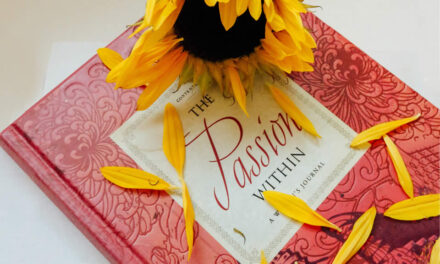Pride has many flavors — they all make life unpleasant!
Pride is an emotion that can be both nurturing or poisonous.It’s okay to feel proud when you accomplish something great. Feeling proud tastes delicious — it inspires positive behavior.
Being proud is a different thing — it can make you come across as arrogant and self-centered. Being proud is about creating an inflated self-image. It makes life unpleasant, especially for those around you.
So, is it better to not feel proud at all?
Pride becomes poisonous when used in significant quantities. Excessive pride leaves a nasty aftertaste — use it with moderation.
Proud Is Nothing to Be Proud Of
Aristotle described pride as the ‘crown of the virtues.’
For the Greek philosopher, pride implies greatness. He considered a proud person as someone who is and thinks to be worthy of great things.
Avoid vices. To think we are worthy of great things when we are not is vanity. Whereas to think of oneself to be worthy of less than we are worthy of is cowardice.
Pride is an emotion we experience when we’ve achieved something great. Or when someone close to us has. It’s the recognition for a job well done.
So, is pride something virtuous or evil?
Modern psychologists split pride in two emotions: hubristic and authentic.
Authentic pride is feeling confident and competent about who you are. Hubristic pride is letting egocentrism and arrogance take over. The latter encourages aggressive behavior; the first, affiliation.
Experts argue they are not two separate emotions — the dosage separates authentic pride from hubristic pride. Pride itself is not a problem — excessive pride is.
Arrogant people tend to score high on narcissism. Excessive pride diminishes self-awareness. Like an arrogant leader who’s always exaggerating his achievements to denigrate his rivals.
Excessive pride is an exaggerated appreciation of oneself by devaluating others — we turn other people into our competitors.
While pride can undoubtedly lead to arrogant displays, it can also motivate us to give our best.
“I know” is teenagers’ response by default. They are not wired to listen. Adolescents believe they have all the answers. That’s not an issue unless they carry that arrogant behavior into adulthood.
Excessive pride makes us ignorant. It harms our relationships too — nobody likes being with a know-it-all.
Pride is like a condiment — it adds flavor to your life. A little touch can make it more pleasurable or exciting. In excess, it makes everything unpleasant.
Excessive Pride Tastes Like Poison
Feeling proud is not the same as being proud.
Acknowledging your strengths and achievements reinforces positive behavior. It inspires you to give more.
However, being proud is living under a distorted notion. We exaggerate our perception of self to feel superior.
Pride is rooted in the same principle that envy — we define our self worth by comparing to others. But, unlike envy, rather than wanting what others have, we need to disparage them to feel superior.
Buddhism recognizes six poisons that harm our perception and behavior. Pride is the most pervasive.
Excessive pride is an exaggerated appreciation of oneself by devaluating others. It is often driven by poor self-worth. We are so insecure that we compensate by feeling superior. And look for others’ flaws as a way to disguise our own.
We spend too much time competing with other people. They taught us that winners take all. Most people believe that being successful requires humiliating or defeating others.
Excessive pride prevents the growth of other virtues. It becomes too uncomfortable to recognize our shortcoming or mistakes. Pride makes us believe we are always right.
How can we become more compassionate if we are already so great?The Seven Flavors of Pride
Pride has many flavors — actually seven, according to Thubten Chodron.
In one of her teachings, the American Buddhist explains the different flavors that pride takes. Each has self-indulgent nuances. But, they all leave a bitter aftertaste.
This happens when we, in fact, are better than somebody else in one of those aspects. We compare our strengths to someone else’s weakness. And look down on them.
Great pride is a culture view, especially in America. That’s what kids learn from their parents. They associate getting recognition to beating someone else.
Even when we go for a run or bike ride, we need stats to prove that we are better. All we care is bragging about our superior performance, not the joy of exercising.
As Chodron explains, parents don’t ask their children if they had fun during a match. But, praise their kids when they beat others. Children learn that recognition matters more than having joy.
Great pride is the enemy of collaboration — instead of thinking of the group welfare, we want to win.
Instead of accepting the fact, we look for something that will make us proud. For example, you might say, “I might not be as good taking pictures as X, but I’m a more honest person.”
You focus on another quality that will help overcome your weakness. One that will make you feel morally superior. You defeat the other person by attacking their virtues.
It can be something insignificant, but still, you find a way to discredit your ‘opponents’ by finding their moral flaw.
You turn one experience into something that makes you feel the king of the world. Like when you break a rule or do something that makes you feel unique.
You see it all the time — people get attached to an illusion. They think they are proficient at something but are clueless.
Manifest pride is when we believe we are better, wiser, more spiritual, or virtuous than we are.
We make ourselves insignificant by putting ourselves down. We make a big deal of small flaws to feel at the center of the world.
The need to compete with others makes us cling to an exaggerated image of ourselves — in this case, a negative one. We become proud of being a victim.
It’s the feeling of superiority when someone cheats and doesn’t get caught. Think of those who lie in the tax declaration or frame someone else at work for a mistake they did.
Distorted pride is when our morality is full of holes, but we feel superior because we got away with it.
The Antidote to Excessive Pride
Unfortunately, there’s no simple cure. We spend our entire lives feeding our ego — it takes time to re-frame that relationship.
Start by reflecting on the role pride plays in your life.
Acknowledge the difference between feeling proud and being proud. The first is the joy of a job well done. The latter is an exaggerated, distorted version of who you are.
You can turn your pride into a means for development. Inquire your pride and see how it manifests. Excessive pride signals what we must further develop.
- Do you feel insecure about a particular aspect of yourself?
- Do you have a distorted perception of your strengths or abilities?
- Do you see others as rivals or collaborators?
Buddhism teaches to overcome excessive pride by cultivating equanimity and love for others. An appreciation for life and people removes the need to defeat them — there’s no need to compete.
Reconnecting ourselves with what we don’t know keeps our ego in check.Intellectual humility can help overcome our pride too. Do you think you know a lot about a particular topic? Focus on something complicated that you don’t master. Surround yourself with people who know more than you do.
Pride is being attached to an exaggerated image of our self — we must let go of that dependence.Thubten Chodron recommends contemplating that everything we have came from others.
Reflect that everything you do, know, are or have it’s not yours to start with. Everything happened due to the efforts and kindness of somebody else.
Do you feel proud of your body? Your parents gave it to you.
Are you proud of your car? Reflect on everybody involved in designing, building, and distributing the vehicle. Somebody else created it — not you.
Trace the origin of whatever you feel proud — consider everyone who participated in the process.
Your knowledge is not yours alone. Your parents, teachers, professors, coaches, and many more contributed to your learning experience.
The world is an interconnected whole — no person or nation can be truly isolated. Reflecting on that will keep your pride under control. Everything we own or achieve is a consequence of collaboration with others.
Pride poisons our life.
It creates an inflated version of self that we must defend at all costs. We take everything as criticism — we are under attack.
Don’t turn life into an unpleasant experience. Work on deflating your ego. When your identity no longer is at stake, you won’t need to fight with others.
Recover the pleasure of playing — life is not a match to be won, but enjoyed. Acknowledge the good, avoid the pressure to defeat others.
You wouldn’t accomplish anything without the help of other people. Pride has no room when we understand it’s better to be surrounded by collaborators rather than competitors.
![]()


Guatavo Ranzzetti
Author
Gustavo Razzetti is a change instigator who makes your culture move you forward — not backward. He advises, writes, and speaks on team development and culture transformation.
Article credit and social network links below…

























